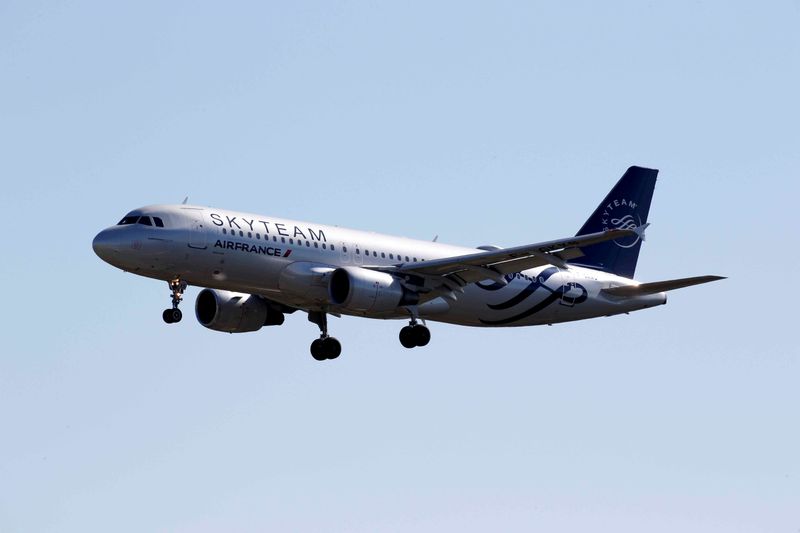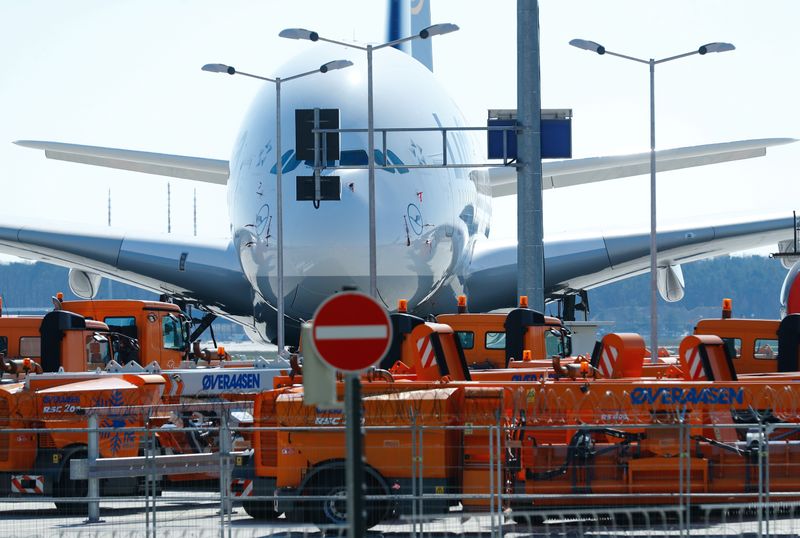By Tim Hepher and Johanna Decorse
PARIS/TOULOUSE (Reuters) - Europe's Airbus (PA:AIR) is grappling with labor and supply chain shortages and may only be able to restore aircraft production to some 10-20% of normal levels for now because of partial shutdowns, industry and union sources said.
Worst affected are wide-body jets, demand for which is expected to come under pressure as the coronavirus crisis hits airlines worldwide, especially in the long-haul Asia market.
The European planemaker, whose factories are spread across Europe, restored output at French and Spanish plants a week ago after a four-day shutdown. On Monday it announced a new closure of Spanish plants that make tail sections of Airbus jets.
Airbus said it would suspend most production in Spain until April 9 after the Madrid government tightened the coronavirus lockdown. It has also said British and German wings production and assembly would stop for three weeks.
On Monday, union officials estimated 10-12% of Airbus staff were present at Airbus headquarters factories in Toulouse. An industry official put the total closer to 15%.
"Activity has restarted on the A320 line, and very weakly on the (wide-body) A350 and A330," said Francoise Vallin, Airbus coordinator for the CFE-CGC union.
Airbus reiterated it had withdrawn 2020 targets.
STRATEGIC SECTOR
Despite a massive effort by the French government to keep strategic parts of the economy running with credit guarantees and initiatives to protect small businesses, parts shortages persist throughout the supply chain, industry sources said.
Especially badly hit are the so-called tier-two or tier-three suppliers, which are sub-contractors to larger companies that deal directly with Airbus or its U.S. rival Boeing (NYSE:BA).
"Up to half the French supply chain has been closed at some point but the situation is improving," a senior executive said.
Airbus and other major aerospace companies have been left in no doubt that the French government sees it as a strategically important sector and should not risk collapse of the supply chain by closing operations completely, two senior sources said.
The immediate priority is to safeguard defense and security activities linked to public infrastructure, one of them added.
"The idea is not to stop everything totally, because getting the sub-contractors and suppliers going again could be a very long process," Vallin said.
By contrast with the auto sector, suppliers are expected to pick up speed only gradually as airlines resume flying and amass the cash needed to fulfill record orders. Airlines last week predicted a slower U-shaped recovery rather than a V-shaped one.
France's Safran (PA:SAF), the world's third largest aero supplier, said last week it continued to deliver engines to Airbus and had enough parts for 2-to-3 weeks. But its chief executive noted some problems further down its supply chain.
Airbus is also finding it difficult to make deliveries because of the logistics of getting foreign pilots to France or Germany and the reluctance of many airlines to take aircraft as they face liquidity problems, industry sources said.
Even such details as finding hotels are said to be a problem, forcing Airbus to look at using its own hotel and restaurant in its in-house academy known as Airbus University.

Unions and some analysts have expressed surprise that it has not shut factories completely given the difficulty of making deliveries. The company has said it is taking every possible step to keep its people healthy and is not forcing anybody to work.
